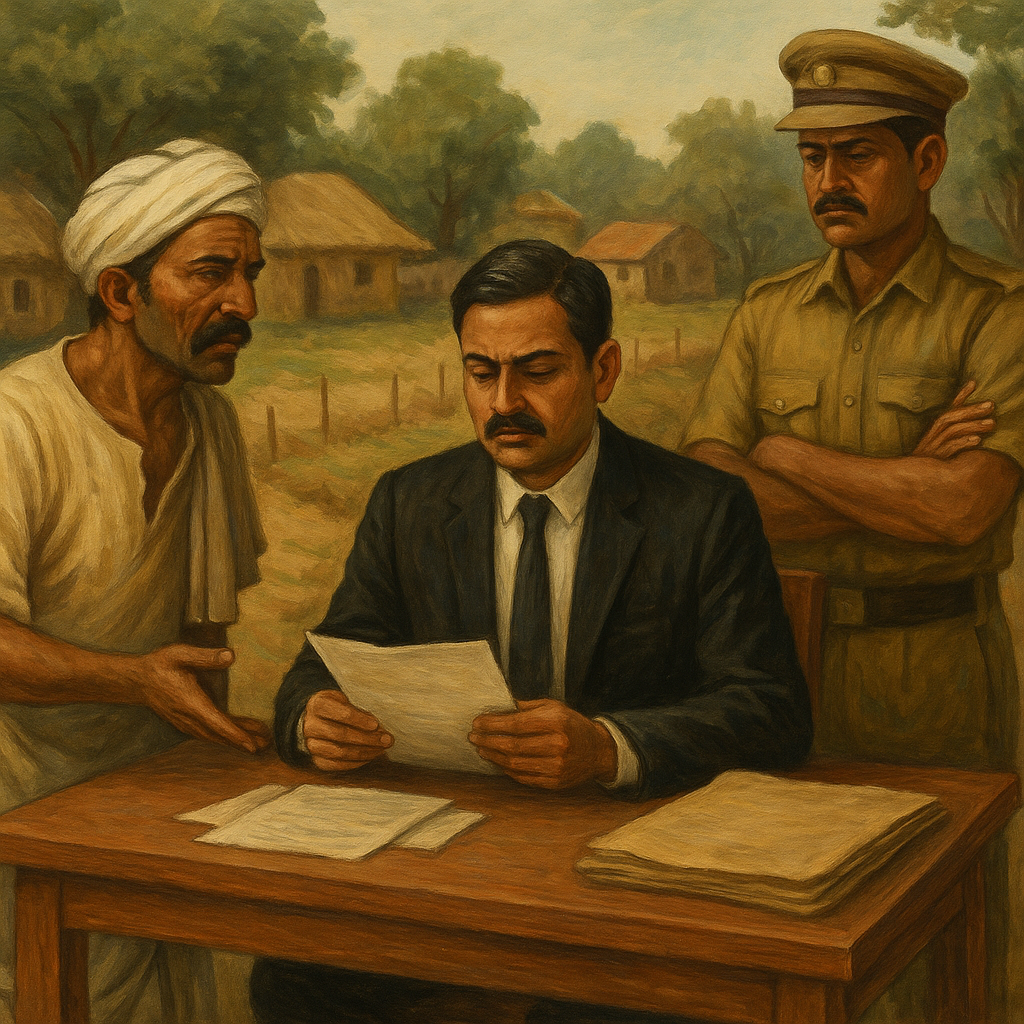Simplified Explanation of the Judgment
The Patna High Court recently dealt with a writ petition filed by a resident of Gopalganj district who had challenged an encroachment proceeding initiated against him by the Circle Officer of Hathwa Block. The case sheds light on how disputes over alleged land encroachments should be addressed, and more importantly, what remedies are available when a final order has already been passed by the local revenue authority.
The petitioner had approached the Court seeking to quash the encroachment case against him. However, during the hearing, it came to light that the Circle Officer, Hathwa Block, had already passed a final order on 13.12.2017, declaring the petitioner to be in encroachment. Once such a final order exists, the normal legal process requires the aggrieved person to pursue an appeal before the competent authority instead of seeking a writ directly.
Acknowledging this fact, the petitioner’s lawyer submitted before the Court that the petitioner wished to file an appeal before the District Collector, Gopalganj (Respondent No. 2), who is the designated appellate authority under the law. The counsel further requested that the Court note the petitioner’s contention that his case was similar to others who had already been exempted from encroachment proceedings.
The Court (Hon’ble Mr. Justice Mohit Kumar Shah) accepted this request and disposed of the writ petition with clear directions:
- The petitioner was granted liberty to file an appeal before the Collector, Gopalganj, within four weeks.
- The Collector was directed to consider and decide the appeal within 12 weeks of its filing, in accordance with law.
- To protect the petitioner’s rights in the interim, the Court ordered that the status quo as existing on the date of the judgment (26.07.2022) would continue for four weeks, allowing the petitioner sufficient time to file his appeal and seek interim relief from the appellate authority.
Thus, instead of ruling directly on the merits of the encroachment order, the High Court chose to channel the dispute through the proper statutory appeal process.
This judgment highlights how the High Court exercises its writ jurisdiction carefully, respecting the role of statutory authorities, while still ensuring that citizens are not left remediless.
Significance or Implication of the Judgment
- For landowners and residents in Bihar: The judgment shows that if an encroachment case has already been decided by the Circle Officer, the appropriate remedy is not a writ petition, but an appeal before the District Collector. This ensures that the dispute is first reviewed at the local administrative level.
- For the government and revenue authorities: The Court’s decision reinforces the principle that local authorities like the Collector are primarily responsible for hearing appeals against encroachment orders. It also ensures administrative accountability and faster resolution without unnecessary involvement of the High Court.
- For the general public: The order gives assurance that even when a writ petition is not entertained directly, the High Court can still protect citizens by maintaining status quo for a short period so that they can seek remedy before the competent authority.
- For rule of law: The judgment underscores the importance of following the proper legal hierarchy of remedies. Courts encourage people to exhaust their statutory remedies before invoking writ jurisdiction.
Legal Issue(s) Decided and the Court’s Decision with Reasoning
- Issue 1: Can the High Court quash an encroachment order already finalized by the Circle Officer?
- Decision: No. Since a final order had already been passed on 13.12.2017, the correct course was to file an appeal before the Collector.
- Issue 2: What remedy should be provided to the petitioner?
- Decision: The petitioner was granted liberty to file an appeal before the Collector within four weeks.
- Issue 3: Should interim protection be given to the petitioner until the appeal is filed?
- Decision: Yes. The Court directed that status quo would be maintained for four weeks to allow the petitioner to file his appeal and seek interim relief.
Case Title
Safi Alam Khan v. The State of Bihar & Ors.
Case Number
Civil Writ Jurisdiction Case No. 1361 of 2018
Citation(s)
2021(2) PLJR 131
Coram and Names of Judges
Hon’ble Mr. Justice Mohit Kumar Shah
Names of Advocates and Who They Appeared For
- For Petitioner: Mr. Ranjan Kumar Srivastava, Advocate
- For Respondents: Mr. Sajid Salim Khan (SC-25)
Link to Judgment
MTUjMTM2MSMyMDE4IzQjTg==-8WRdVP–ak1–sQv0=
If you found this explanation helpful and wish to stay informed about how legal developments may affect your rights in Bihar, you may consider following Samvida Law Associates for more updates.









